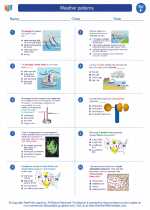Steroids
Steroids are a class of organic compounds that have a specific molecular structure. They play important roles in the body, including regulating metabolism, immune function, and the balance of salt and water. There are two main types of steroids: corticosteroids and anabolic-androgenic steroids.
Corticosteroids
Corticosteroids are produced in the adrenal glands and are involved in a wide range of physiological processes, including the regulation of inflammation, immune response, and carbohydrate metabolism. They are often used as medications to reduce inflammation in conditions such as asthma, arthritis, and allergic reactions.
Anabolic-Androgenic Steroids
Anabolic-androgenic steroids are synthetic derivatives of the male sex hormone testosterone. They are used to promote muscle growth and enhance athletic performance. However, non-medical use of anabolic steroids can have serious and potentially harmful effects on the body, including liver damage, cardiovascular problems, and psychological effects.
Study Guide
- What are the two main types of steroids?
- What are the functions of corticosteroids in the body?
- What are anabolic-androgenic steroids, and what are they used for?
- What are the potential risks of non-medical use of anabolic steroids?
The two main types of steroids are corticosteroids and anabolic-androgenic steroids.
Corticosteroids play roles in regulating inflammation, immune response, and carbohydrate metabolism.
Anabolic-androgenic steroids are synthetic derivatives of testosterone and are used to promote muscle growth and enhance athletic performance.
Non-medical use of anabolic steroids can lead to liver damage, cardiovascular problems, and psychological effects.
◂Science Worksheets and Study Guides Sixth Grade. Weather patterns

 Worksheet/Answer key
Worksheet/Answer key
 Worksheet/Answer key
Worksheet/Answer key
 Worksheet/Answer key
Worksheet/Answer key
 Vocabulary/Answer key
Vocabulary/Answer key
 Vocabulary/Answer key
Vocabulary/Answer key
 Vocabulary/Answer key
Vocabulary/Answer key
 Vocabulary/Answer key
Vocabulary/Answer key
